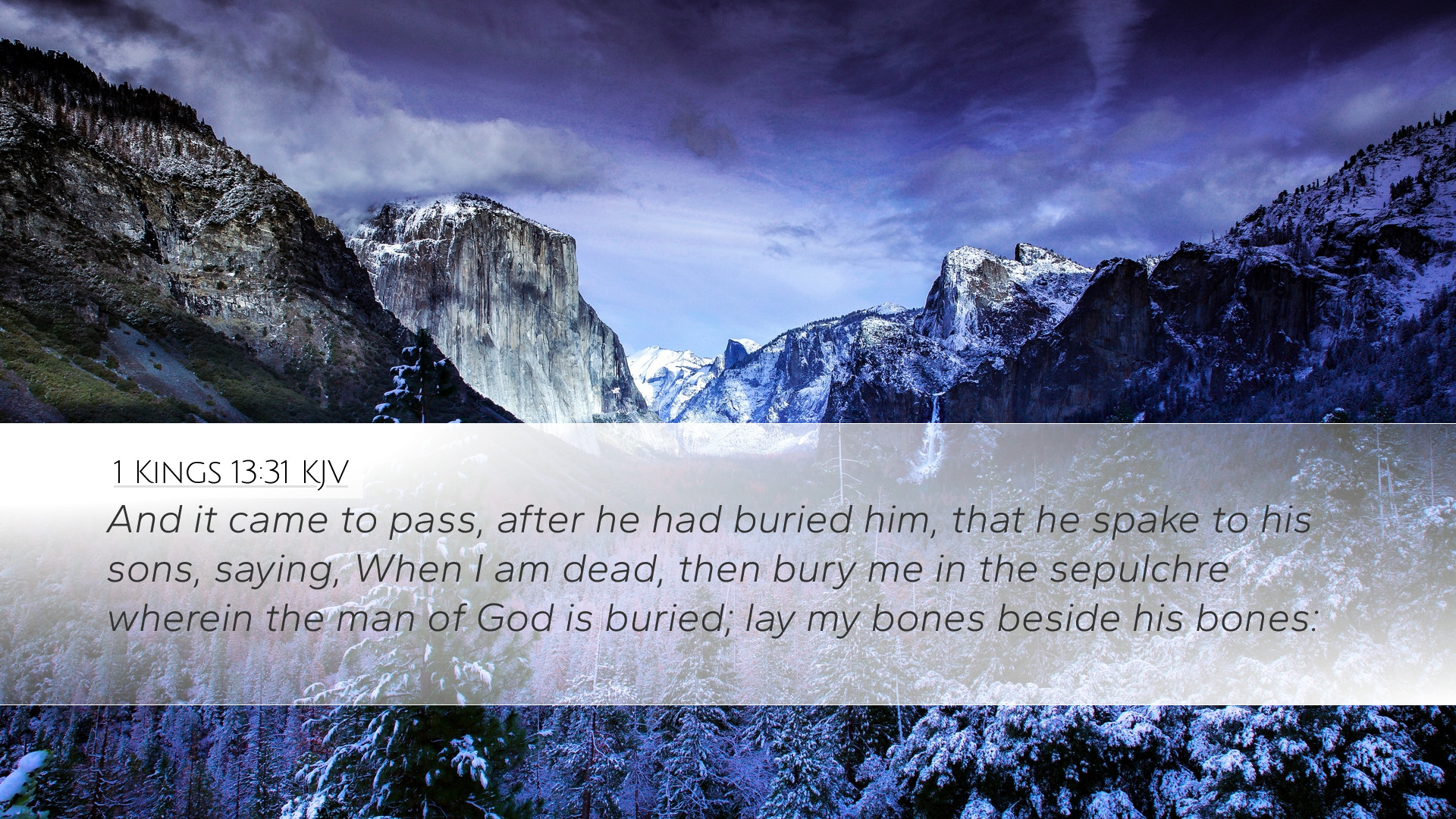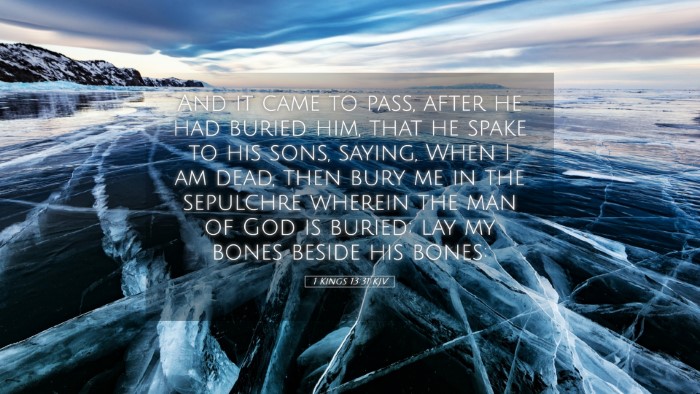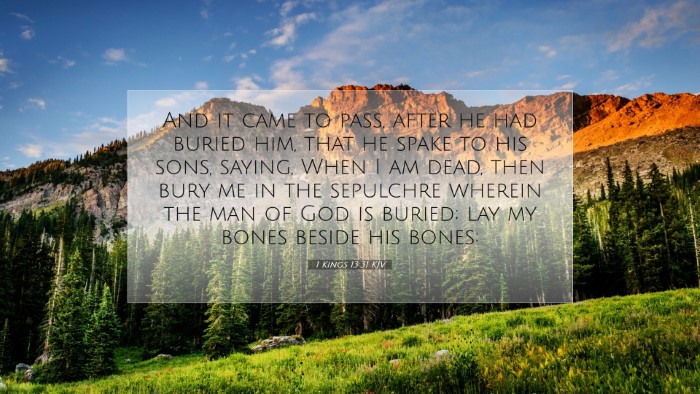Commentary on 1 Kings 13:31
1 Kings 13:31: "And it came to pass, after he had buried him, that he spake to his sons, saying, When I am dead, then bury me in the sepulchre wherein the man of God is buried; lay my bones beside his bones."
Context and Background
The narrative surrounding 1 Kings 13 serves as a striking illustration of the consequences of disobedience, the importance of divine authority, and the sovereignty of God over men’s lives and destinies.
This specific verse follows the death of the prophet who was sent to deliver God’s message to King Jeroboam. The events that transpired both prior to and following this moment highlight the significance of the prophet's message and the legacy he left behind.
Insights from Matthew Henry
Matthew Henry comments on the solemnity of the prophet's burial and the connection between the prophet and the man of God. He notes that the man of God, despite his tragic end due to disobedience, was still honored in death. The bones being requested to be laid beside the prophet's signifies a sense of respect and reverence.
- Honor and Legacy: It reflects on the lasting impact a servant of God can have, even after their failure. Henry emphasizes that ultimately, the man of God fulfilled his divine mission.
- Emphasis on Divine Judgment: Ultimately emphasizing that even divine servants are not exempt from God’s judgment when they disobey. This serves as a reminder to future generations about the weight of divine authority.
Insights from Albert Barnes
Albert Barnes emphasizes the importance of the man of God and how even in death, he still commanded respect. Barnes points out that the request of the old prophet to be buried alongside the man of God denotes both a recognition of the prophet’s divine commission and an understanding of his own shortcomings.
- Recognition of Authority: Barnes notes that the request to be buried beside the prophet signifies both regret for his misdeeds and a desire to be associated with a man who was truly faithful to God.
- Spiritual Reflection: Barnes implies that this act should inspire believers to seek forgiveness and strive for a righteous legacy, reflecting on their life in light of eternity.
Insights from Adam Clarke
Adam Clarke elaborates on the significance of the burial request and the implications it has for understanding the Old Testament's prophetic role. He illustrates the relationship between the old prophet and the young man of God, highlighting themes of repentance and respect for God’s chosen messengers.
- Contrast and Redemption: Clarke argues that the old prophet's acknowledgment of his moral failure and desire for a proper burial indicates a path for redemption and restoration.
- Symbolism in Burial: The act of burial is framed not just as a final resting place, but as a symbol of faith and respect for God’s chosen. Clarke encourages readers to contemplate the spiritual significance of their own final resting places.
Theological Implications
This verse raises several theological questions regarding the perception of prophets, authority, sin, and the afterlife. The legacy of the man of God serves as a reminder of the seriousness of following divine instruction. The importance placed on a prophet's remains suggests that while individuals may fail, their service to God can be remembered and honored by future generations.
- Role of Prophets: The prophets’ roles as divine messengers are crucial in understanding God’s plan and purpose, emphasizing that their authority stems from obedience to God’s commands.
- Endurance of Influence: The longing to be buried beside a faithful servant emphasizes the enduring nature of religious influence, encouraging future believers to carry forward the legacies of faith.
Conclusion
In summary, 1 Kings 13:31 highlights profound truths about honor, legacy, and the nature of divine authority. The combined insights from Matthew Henry, Albert Barnes, and Adam Clarke provide a multi-faceted understanding that can enrich the study of this passage for pastors, students, theologians, and Bible scholars. The text invites reflection on the nature of our legacies and the call to faithful service in light of God’s greater purpose.


